
Richard Youngs: “I’ve never really liked songs with too many words in. It just sounds like clutter.”
The release of his latest album gives us a chance to learn about the creative process of this post-punk master
With approximately 140 albums and numerous collaborations to his name, the word ‘prolific’ fails to do justice to the rich and diverse output of Richard Youngs. If you’re looking for a thread that runs through all of his work, it’s his dedication to a DIY ethos and non-conformist approach to songwriting forged in the world of post-punk. From his work with Omming For Woks to solo records such as 1990’s Advent and 2004’s River Through Howling Sky, Youngs’ adventures in sound are well worth delving into.
His latest release is Belief, a cycle of chamber pop songs created in his hometown of Glasgow, with Youngs playing all the instruments and building the tracks from self-made percussive samples. Though the resulting songs are surprisingly poppy, the method is exactly what we’ve come to expect from the master of DIY. Tim Burgess was also suitably impressed and has released the album on his O Genesis label. We recently caught up with Youngs to learn all about the creation of Belief…
How did you begin building the tracks?
“I was very aware of the ease in which you can use stock samples and end up sounding like everyone else. I had a good microphone and figured that I could make my own samples and expand my mind a bit in the process, learn how to programme sounds into a sampler and make them into interesting patterns. So I scoured the flat for what was at hand, one of the things was a hand clap, I could do that quite easily. There was an extractor fan vent which I’d been storing up because I knew it sounded good when you hit it. Then things like white noise off my FM radio. If you take a blast of that it sounds quite like the analogue snare on a very primitive drum machine. I actually have got a primitive drum machine and I just used the kick on that as it was so much better than anything I could generate myself. I had a battered up cymbal which a drummer friend gave me and it sounded nothing like a cymbal when I ended up recording it really.
“So I massed this library of about nine or ten noises and I programmed them into beats which I actually mapped. There’s a website which gives you the beats per minutes to songs and their durations and I just randomly chose songs and took their durations and how many BPM they had to set the tempos and durations of each song.”
What happened next?
“The first thing happened was that I had these rhythm tracks. I didn’t even know where it was going at this point, I was just making some them as a lesson in technology. I had no sense that it was going to be a song album but at some point it began to dawn on me that I’d use these durations and these tempos from these randomly determined and quite commercial material, we’re talking major artists like The Beatles and Bob Dylan. I thought, ‘These could be songs actually, they’re the right length and the right tempos,’ and one thing led to another.”
How does that differ to you usual approach?
“I don’t know if there is a usual approach, I always like to feel as if I’m a bit out of my depth and not in my comfort zone. I’m not sure what my normal experience is because when I make music it isn’t always songs, but this certainly felt like something new. I had these rhythms and I knew I wanted to make them into songs. Songs need some kind of melody or chord progression. A lot of these were pieced together bit by bit and not always in ways that made sense to me. For some of them I generated random numbers and just tried those numbers on a guitar fret. The opening track, My Own 21st Century – the chord progression is from randomly generated numbers and it actually sounded like quite a classic progression in the end.
“Other ones were possibly borrowed from half-finished stuff or just strange chance methods, and then maybe reconfiguring them a bit in my head so they made sense. It felt quite workmanlike throughout. It was only when it had all ended and I went back and listened to it I thought ‘Hey, that is actually very pleasing. It sounds like I actually meant something.’ That’s not something your singer-songwriter should be confessing, but it was really an experimental journey that wound up sounding in my oeuvre.”
Were the lyrics created in an equally experimental way?
“I’ve just transcribed them and realised how few there were. One of my favourite song records is side one of David Bowie’s Low and if you look at those lyrics, there’s hardly any. I’ve never really liked songs with too many words in. It just sounds like clutter. What words there were here came from little snippets of misheard things, things friends and family have said, sometimes maybe dipping a finger into a book and getting a phrase and then another phrase and jumbling it all up. Again, it didn’t feel like I was honing some great big statement but I think each song does convey a state of mind or state of being. Whether by chance or design, I don’t know!”

Richard: “Dull music will always remain dull music, whether you’ve recorded it at Abbey Road or made it in a squat.”
Are you one of those people who likes to keep tampering or do you know when to finish something and move on?
“Oh I’m a ‘mover onner’, definitely. If it’s working, it’s working and if it isn’t, it isn’t. You can go down that road of, ‘Well if I could only change this and change that,’ but in the time it takes to do that you could have started something new and moved on. Maybe I’ve just got a short attention span. I’m possessed with impatience. Having said that, I’ve just actually been recording in Barcelona with a guy who is mainly a flamenco producer and he was great for focussing me and not moving on. He got me to really raise my game through staying put at one point.”
Does that mean it’s frustrating currently, having to talk about a record that you’ve already moved on from?
“I’m always making stuff but this record is quite exciting because it is a bit of a departure and also because the people involved have been great; really positive and encouraging and it’s been a whole journey. It still feels like things are happening with it, it’s not done and dusted. Now I’m working out how to play it on an acoustic guitar and it feels like there’s still work to be done.”
You mention how encouraging people have been… Is it right that you were initially expecting to turn all the label rejections into an art project?
“In my mind I was thinking of sending it to absolutely everyone, like Sony and Universal, but then I realised that it would be met with complete indifference or ignored. When I finished it all, in my mind I thought that in some sense it was a major label record. Now how do you define major in this day and age, there are independents that are majors and majors that are independents. I wanted to see what happened getting it to people I hadn’t got it to before and as it happened, quite by chance, that came to be. I was chatting with Daniel O’Sullivan and I was hearing his Veld album, it was really nice and poppy with lovely harmonies, and I mentioned that I’d been recording some really quite poppy stuff myself. He said he’d love to hear it and I sent him some mixes and I think within a day he got back to say that his friend Tim Burgess would love to release it. And that was it. I had already got it onto a major label within about 24 hours.”
Was the record all ready to go at that point?
“I hadn’t thought about cover work and it hadn’t been mastered but it had a running order, was all mixed and it was goodish to go.”
What do you think are the positive and negative aspects of writing and recording on your own?
“I have worked in studios and there is a sense that you’re up against the clock a bit. Time is money and money is time. From a very early age, I’ve always been into that punk thing of do-it-yourself, it’s the way I work generally. I have used studios but unless the studio is owned by someone who is part of that project then there is a sense of pressure. It can be a good thing and it can be a bad thing. As it is, the way technology has gone, you can get some good results without spending too much money now. That suits me down to the ground as I don’t have too much money to spend. Also I love the very thing of recording. To me it’s like a leisure pursuit so to be able to do it at home is great.”
Do you see technology as a leveller?
“I do think that talent will out. You’ve got all this technology but you still need a decent idea or ability or vision. Sometimes I hear music and rather than actually hearing the humanity or sensing the vision or feeling the emotion, I just see a screenshot. So it is a leveller but at the same time, anyone who has a pen and paper could write a poem but there are good poets and bad poets and good poems and bad poems. Dull music will always remain dull music, whether you’ve recorded it at Abbey Road or made it in a squat.”
Has that DIY ethos been the biggest influence on your style?
“Possibly, though the first music that I heard outside of my parent’s tastes was Pink Floyd. To this day I have this totally irrational love of Pink Floyd, which is probably as far as you can get from punk. I should say that it’s before The Dark Side Of The Moon, that’s the cutoff point for me.”
How about Glasgow, how big an influence has the city and its people had on you?
“I know you can’t tell it from the accent but I’ve lived here for 30 years and it is home and it’s a place that has obviously had an influence on me, though I’m not sure I could say how. Places shape you. Madeline my wife has just called from the over room, ‘It takes no shit,’ so maybe it’s that any shit I had in me, I’ve had to strip out.
“I think the shit would be pretensions to something that you’re not. I think that Belief isn’t pretending to be something. It’s very human and honest. It’s not a record that has any shit on it and you can’t take any shit from that record.”
Do you still get nervous and what sort of expectations do you have when releasing new material at this point in your career?
“That’s interesting. I think there’s obviously something that drives me to still do it. It’s a sense of closure on a project, that’s why I like things on record. It’s the sense that you can get it all together with artwork and for it not just to be a collection of recordings. At that point other people are experiencing it as well. So I think it’s a very traditional to say but I want to reach people. In spite of all my contrariness and bloody-mindedness, I still want to reach people and have that connection and I’m overjoyed when people get things out of stuff that I’ve made. It feels like I’m actually contributing in some way.”
Interview: Duncan Haskell
Richard Young’s latest album Belief is out now. Find out more at ogenesis.tmstor.es



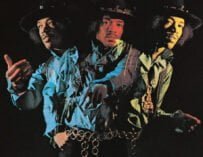
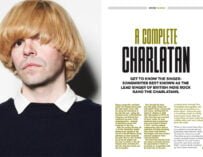

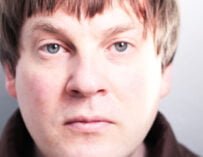


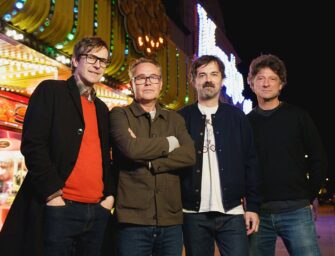

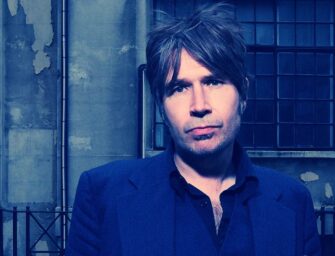























Related Articles